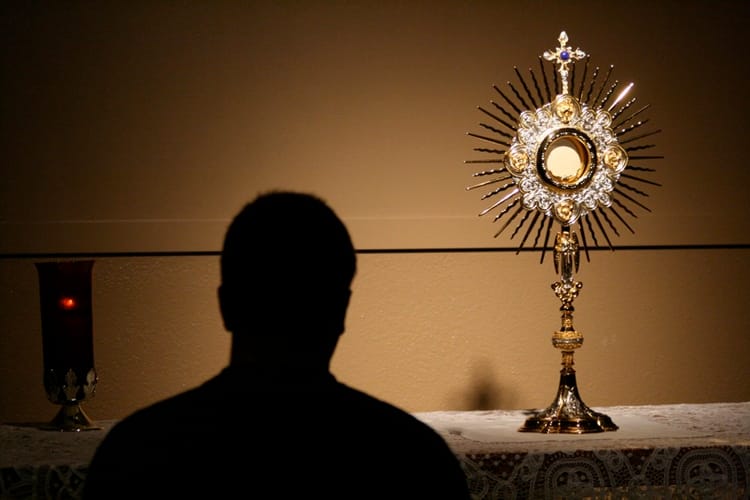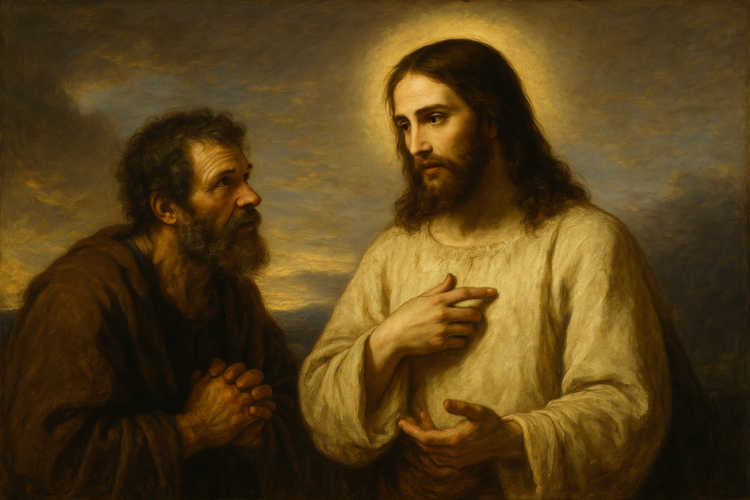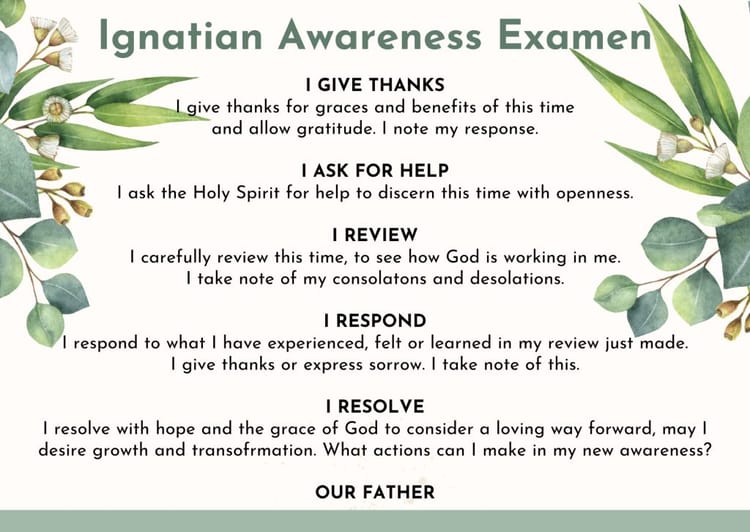Encounter: Know Who You're Talking To

Prayer has been a primary concern and interest of mine throughout the entirety of myown spiritual journey. I have spent time reading and studying the major works of thespiritual giants who came before me, I have immersed myself in daily prayer practicesvarying from the Ignatian Exercises to lectio divina to the Divine Office. I have alwaysknown and believed that, as a disciple of Jesus, prayer was my “job”, so to speak, and Isought to understand it and to do it well.
In much of my reading and study, prayer isoften described as a conversation with God, emphasizing the point that a conversation involves two parties speaking and listening in turn. The Catechism tells us that prayer is personal. Yet I think many of us find the idea of a conversation with God or a “personal relationship” with the Creator of the Universe to be a stumbling block in and of itself. We believe in the Real Presence in the Eucharist, we confess our sins to our priests understanding it is Jesus and His grace that is working in the sacrament, and we participate in the Liturgy understanding we are worshipping God. Apart from crying out to the Lord when we desperately need Him, it can be difficult to find the context in which prayer operates in our daily lives. I firmly believe that this is because so many of
us have not yet encountered the Risen Lord, the person of Jesus Christ, in an authentic way.
When I experienced a strong reversion to my Catholic Faith, there was a lot of talk going on about “Encounter”. Being full of zeal and spiritually hungry, I committed to the idea of Encounter and began asking the Lord to show me how to meet Him. His answer came in the form of the Ignatian Exercises; as it would turn out, I took St. Ignatius of Loyola as my confirmation saint due to the profound impact the Exercises and Ignatian spirituality had on me. Before the Exercises, I possessed knowledge about Jesus- I had read and studied the Gospels, I was reading through a few different books- Jesus of Nazareth by Benedict XVI, To Know Christ Jesus by Frank Sheed, The Lord by Guardini. I had biographical and theological knowledge about Christ, I had data, but I would not call my relationship with Him personal. Throughout the course of the Exercises I came to know Jesus in a very real, very intimate way. He was no longer distant or theoretical, not simply words on a page (albeit holy words on holy pages) or someone I knew a lot
about. I knew Jesus because I met Him, I accompanied Him, as Ignatius would say, and it changed my entire life.
If we examine the Gospels, we see that the Apostles respond to the call of Jesus, but that call is coming from the mouth of a living, breathing man. They respond to Him, and do so with no real explanation or idea of who He is or what they’re signing up for. After Pentecost and through the first few centuries of the Church, we know that the lives of the martyrs and the witness of the holy lives of the saints delivered that same type of encounter to the nations. Christianity did not survive because of a set of facts or collection of writings; it did not endure because of its dogmas and doctrine alone. Christianity survived because the world encountered Christ in His Apostles and the holy men and women who followed after them, and they responded to that with a boldness and charity of spirit that is made all the more significant given the way in which so many of these men and women died. The Church grew because the people who met and knew Jesus allowed those encounters to form them, and then they shared that with others so they, too, could meet and know Him.
To have the sort of meaningful conversation that prayer is meant to be, that God wants to have with us, we must know Him first. This is a knowledge beyond what is provided in Scripture and other excellent books. Knowing God in a concrete and intimate way is what breathes life into our prayer. It is how we have converted people and spread the Gospel, and it is how we ought to encourage our own ongoing and deepening conversion. You cannot have a conversation with someone you do not know, who does not seem “real” to you, and it is perfectly acceptable to kneel before the Lord and say, “I don’t know you, but I want to.” The Lord of the Gospels wants nothing more than to meet you and share Himself with you. It is why He made you.




Member discussion